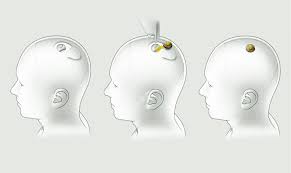Hospitality will get decentralized too as covid reshapes the world
Jaspreet Bindra
“I will go on the record to say that travel will never, ever go back to the way it was pre-COVID; it just won’t,” says Brian Chesky. “There are sometimes months when decades of transformation happen.”
Chesky should know what he is talking, he is the co-founder and CEO of Airbnb. A bit ironically, he was saying this on Zoom from his San Francisco home. Perhaps no industry has been hit harder by the pandemic than travel and hospitality – hotels have closed their always-open doors, restaurants shuttered, airlines and trains virtually stopped in their tracks. The effect on the industry in India has been particularly devastating – as per Federation of Associations in Indian Tourism and Hospitality, around 70 percent of a total estimated workforce of 55mn could get unemployed.
So, what is the future of hospitality, what ‘decades of transformation’ will these ill-starred months bring? I have been writing a series of columns in this publication on how the pandemic and its lockdowns have spurred ‘a great decentralisation’ in many industries; I believe the same will happen in hospitality.
Human beings have an innate need to travel, so that will not change. However, the destinations might. Rather than going to large hotels where there are hundreds of other people, we might want to go to smaller cottages and BnBs, where we will be alone with our families, isolated from other people. Thus, the smaller homestays will gain at the expense of large multi-roomed hotels, and the smaller lodges and inns will see their place in the sun. We will also go to smaller places; farms, villages, and hill stations with open areas, rather than large, jampacked cities. Travel will spread out from the centers, it will decentralise.
However, decentralisation is one of the five ‘antibodies’ that the hospitality industry will need to build, both to survive as well as to build resilience towards the next big one. (I explain these antibodies in detail in my new book ‘The Immune Organisation’)
Hospitality will have to adapt to a new post-pandemic customer journey – a customer journey is the complete sum of experiences that customers go through when interacting with a company and brand. In travel, the journey literally changes. People used to travel for experience, the touch and feel; the latter bit will drastically change. People will want travel to be as contactless as possible, and as self-contained and controlled as possible. The first thing that you see when you go to the Airbnb site are these words: You don’t need to go far to find what matters. People would prefer to go nearby. Chesky continues, “They’re getting in cars. They’re traveling to communities that are 200 miles away or less. These are usually very small communities. They’re staying in homes and they’re staying longer.”
This will mean a hard relook at business models. Restaurants will need to be a hybrid of socially distanced dining, plus a very active food-delivery model. Large hotel chains might need to go behind large hotels, and form chains of small, socially distanced properties. An opportunity for hospitality could be drawn from disruption of another massive industry – work. With work itself getting decentralised and ‘Work from Anywhere’ taking hold, people will take ‘workcations’, where they stay longer in multiple places and work from there, rather from their homes in crowded cities. Chesky agrees “I think this will be a huge part of Airbnb,” referring to multi-month or “indefinite stays,” with some people opting to avoid rental leases. Stays of 30 days or more were already 15 percent of Airbnb’s business before the pandemic, Chesky said, and currently make up nearly half of its bookings. Will this mean that the hospitality business will start bumping into the real estate business model. Intriguing, though Chesky maintains that “We didn’t start this company to get into the real estate industry.”
Finally, hospitality will have to aggressively embrace technology and automation. Online bookings will only increase, online check-ins will become almost mandatory. Apps on phones will become the new receptionists and doormen, as they guide us into the hotel, manage the check-in process, and open the doors of our rooms, all contactlessly. Paper menus will disappear, QR codes will take their place. Custom built robots might take our luggage to the rooms. There will be people, they will still smile behind their masks, but they will be farther away.
Human beings were built to travel, they were almost genetically programmed to do so. We will continue to travel, but like Robert Frost who found that “two roads diverged in a wood, and I took the one less traveled by”, we will change the way we do. And so must the hospitality industry – find the road less travelled, and go resolutely on it.
(This article appeared as a column in Mint on 9 July 2020)


